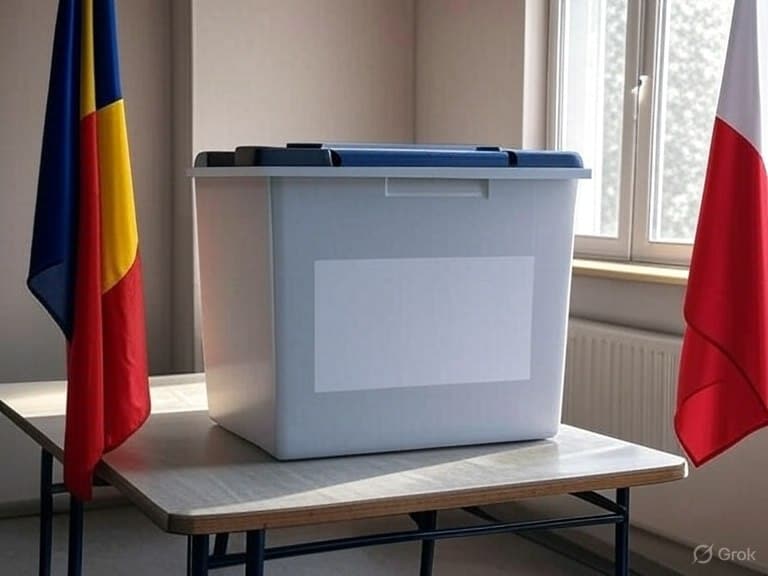Presidential elections are held in Romania and Poland, which could have a major impact on the direction of these countries and the European Union. Romania decides in a second round of repeat elections, Poland starts the first round. The elections reflect the tension between a pro-European direction and growing populism, with issues of national identity, security and foreign influence being addressed.
In Romania, voters are choosing between George Simion, the leader of the nationalist AUR party (40.96 % in the first round), and Nicușor Dan, the mayor of Bucharest (20.99 %). Simion is promoting Eurosceptic policies, rejecting military aid to Ukraine and criticising the "Brussels dictate", thus appealing to voters frustrated with corruption and government. In contrast, Dan advocates pro-European values, integration into NATO and the EU, and anti-corruption reforms, securing him the support of cities and the diaspora.
The polls show a close contest: posts on X on May 17 indicate Dan's lead (52 % vs. 48 %), but Simion had the upper hand before the first round (54 % vs. 46 % according to Curs). The record turnout of the diaspora, which gave Dan 25.45 % in the first round compared to Simion's 6.74 %, may be decisive. The election is under scrutiny due to fears of Russian interference, which led to the cancellation of the original results in 2024.
Voters in Poland decide on Andrzej Duda's successor in the first round. The main candidates are Rafał Trzaskowski of the Civic Coalition (KO) and Karol Nawrocki of Law and Justice (PiS). Trzaskowski, the mayor of Warsaw, promotes pro-European policies, liberal values and minority rights, which are supported by Prime Minister Donald Tusk. Nawrocki emphasises Christian traditions, national sovereignty and rejects the EU migration pact or the liberalisation of abortion laws.
The polls give Trzaskowski over 40 % (IBRiS), Nawrocki has around 30 %. If they advance to the second round (June 1), the contest could be close. Polish authorities are monitoring the risk of foreign interference, inspired by the Romanian case.
The results of the elections will affect the position of both countries in the EU and NATO. Simion's victory could bring Romania closer to isolationism, while Trzaskowski would strengthen Poland's pro-European line.
gnews.cz - GH



